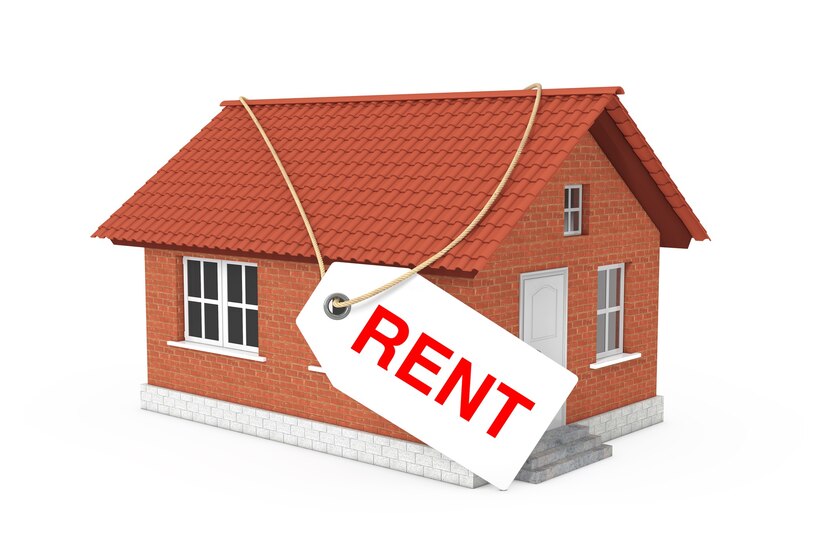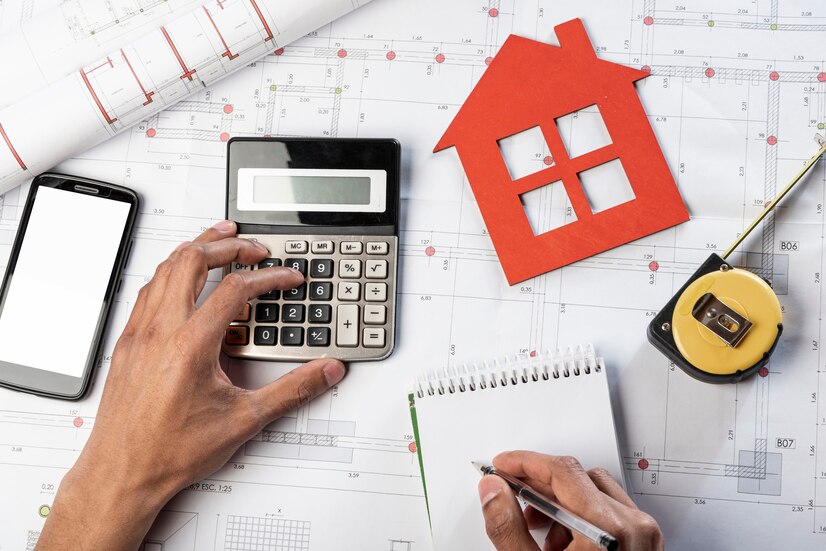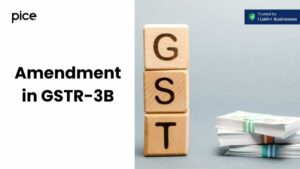GST on Renting of Immovable Property
- 20 Sep 24
- 12 mins

GST on Renting of Immovable Property
- What is GST on rent?
- Content Defining GST on Rent
- Tax on Rental Income in the Pre-GST Era
- Does Renting Out a Property Attract GST?
- Exemption of GST on Residential Properties Used for Personal Residence
- Registration Requirements for Property Owners Renting to Businesses
- How to Calculate GST on Rented Out Properties?
- How to Pay GST on Rent?
- What are the ITC provisions when GST is charged on rent?
- Is ITC on repairs and renovation of property given on rent allowed?
- What is the provision for a tax deduction on income tax for the rented property?
Key Takeaway
- GST is charged at 18% on commercial properties rented out for business purposes.
- Residential properties used for personal residence are exempt from GST.
- Property owners must register for GST if their rental income exceeds the threshold of INR 20 lakhs (or INR 10 lakhs in special category states).
- Registered property owners can claim Input Tax Credit (ITC) for GST paid on business-related property expenses.
- The GST on rental properties is calculated by applying the GST rate to the taxable rental amount and is payable via the GST portal.
What is GST on rent?
GST on rent refers to the Goods and Services Tax applied to the amount charged for leasing or renting out immovable property. This tax is part of India's broader GST framework, which consolidates many former taxes into a single tax structure to simplify and streamline the taxation of goods and services across the nation.
Content Defining GST on Rent
Under the GST regime, the renting of immovable properties for commercial, industrial, or residential purposes for business (not personal use) is considered a supply of services. Hence, it is taxable under GST. The standard GST rate applied is generally 18%, but this can vary based on specific conditions and exemptions laid out by the GST law. For example, residential properties rented for personal use are typically exempt from GST, aiming to reduce the financial burden on consumers.
Tax on Rental Income in the Pre-GST Era
Before the implementation of GST, rental income was taxed differently depending on the type of property being rented out. Service tax was applicable to rental income from commercial properties if the total value of services provided exceeded a certain threshold. This tax was levied at a rate of 15% just before GST was introduced. Residential properties rented for personal use were exempt from service tax, thus limiting the tax liability primarily to commercial rentals. The tax regime was fragmented, with various state-level VAT implications and central government regulations like service tax complicating compliance for property owners.
Does Renting Out a Property Attract GST?

Renting out a property does attract GST if the property is rented for business or commercial purposes. The GST rate typically applied is 18%. This includes properties rented out for shops, offices, and other commercial uses. However, residential properties rented for personal residential use do not attract GST.
The GST law specifies that any lease, tenancy, easement, or licensed to occupy land is a supply of services and is taxable unless specifically exempted. This makes understanding the nuances of what type of renting activities are taxable under GST crucial for property owners and businesses.
Exemption of GST on Residential Properties Used for Personal Residence
GST is exempted for residential properties that are rented out for personal use as residences. This exemption is provided to alleviate the financial burden on individuals who rent properties for their own living and not for business purposes. The GST law specifically exemits residential rentals used for personal living from the tax framework, which means landlords do not need to charge GST on such rentals, nor do they need to include this income when calculating their GST registration threshold.
Registration Requirements for Property Owners Renting to Businesses
Property owners who rent out their properties for business purposes must consider GST registration requirements. The current threshold for mandatory GST registration is a gross annual revenue exceeding INR 20 lakhs across India, except in North-Eastern states and other special category states where the threshold is INR 10 lakhs. If the rental income from such business-oriented properties crosses these thresholds, the property owner must register for GST. This includes any kind of commercial space renting, such as offices, shops, or industrial units, where the transaction is considered a taxable supply under GST regulations.
How to Calculate GST on Rented Out Properties?

Calculating GST on rented properties involves a few straightforward steps:
- Determine the Applicability of GST: First, confirm if GST applies to your property rental. GST is charged on commercial properties and any residential property rented out for business purposes.
- Calculate the Taxable Rent: Calculate the monthly or annual rental amount. This is the amount on which GST will be levied. Make sure to include any additional charges or lease premiums that are part of the rental agreement in this calculation.
- Apply the GST Rate: The standard GST rate for commercial rentals is 18%. Apply this rate to the taxable rental amount to calculate the GST due. For example, if the monthly rent is INR 1,00,000, the GST payable would be 18% of 1,00,000, which is INR 18,000.
How to Pay GST on Rent?
Paying GST on rent involves several key steps that property owners should follow to ensure compliance:
- GST Registration: Ensure you are registered under GST if your total revenue from renting out properties (including all sources if you have multiple properties) exceeds the threshold limit.
- Collect GST: Once registered, you are responsible for collecting GST from your tenants. This GST should be clearly mentioned in the rental invoices as a separate line item.
- File GST Returns: Property owners need to file regular GST returns, typically monthly or quarterly, depending on their turnover and the regulations applicable to them. This involves reporting all GST collected during the period.
- Payment of GST: The collected GST must be paid to the government. This is done through the GST portal, where the landlord can log in, fill out the necessary forms, and make the payment electronically. The deadline for this payment usually aligns with the GST return filing dates.
It is essential for property owners to keep accurate records of all transactions related to property renting, including invoices, receipts, and any correspondence related to the rental agreements and GST collection. This documentation will be crucial for filing accurate GST returns and for any potential audits by tax authorities.
💡If you want to pay your GST with Credit Card, then download Pice Business Payment App. Pice is the one stop app for all paying all your business expenses.
What are the ITC provisions when GST is charged on rent?
Input Tax Credit (ITC) refers to the tax that a business can reclaim on its purchases, which can be offset against the GST it is liable to pay on its sales. When GST is charged on rent, certain provisions for ITC come into play:
- Eligibility for Claiming ITC: Businesses that pay GST on rented properties for commercial purposes are generally eligible to claim ITC. This helps to reduce the overall cost burden of the tax paid on inputs, making it a crucial benefit for businesses that lease or rent commercial spaces.
- Conditions for Claiming ITC: To claim ITC on GST paid on rent, the rented property must be used for the furtherance of business. This means the property should contribute directly to the business activities or must be integral to the business operations.
- Documentation for ITC Claims: Proper documentation is crucial for claiming ITC on rented properties. Businesses must retain copies of rental agreements, GST-compliant invoices from the property owner, and proof of GST payment. These documents serve as the basis for ITC claims during GST filings.
- Exclusions from ITC: If a rented property is used for exempt supplies or non-business (personal) purposes, then the ITC on such GST payments cannot be claimed. Similarly, ITC claims are not allowed if the rent is for residential properties used as a residence, even if it involves some form of business activity.
By effectively utilizing the ITC provisions, businesses can significantly reduce their GST liabilities, which in turn can improve cash flow and overall financial health. It is advisable for businesses to consult with tax professionals to ensure compliance and optimal use of GST provisions related to rental transactions.
Is ITC on repairs and renovation of property given on rent allowed?
Yes, the Input Tax Credit (ITC) on repairs and renovations of property given on rent is generally allowed under the GST regime, provided that the property is used for making taxable supplies, including commercial renting. This means if you undertake repairs or renovations on a property that you rent out for business or commercial purposes, you can claim ITC on the GST paid for such services.

However, there are some conditions:
- The repairs and renovations must be directly related to the business activities conducted in the rented property.
- ITC cannot be claimed for repairs or renovations of residential properties that are not involved in taxable business activities.
It's important to keep detailed invoices and receipts of all such expenses as they need to be presented as evidence when claiming the ITC during your GST filings. Consulting with a GST expert or tax professional can provide further clarity and ensure compliance with the specific provisions and exceptions under the GST laws.
What is the provision for a tax deduction on income tax for the rented property?
In the Indian tax system, income from renting out a property is considered a part of your taxable income under the head 'Income from House Property'. The Income Tax Act provides specific provisions for tax deductions on income from rented properties to calculate the net taxable rental income:
- Standard Deduction: A flat 30% deduction on the net annual value of the property is allowed as a standard deduction for repair, maintenance, and other expenses, irrespective of the actual expenditure incurred. This is applicable only to rented properties and not to self-occupied ones.
- Property Tax Deduction: Property taxes paid to any local authority with respect to the property are deductible in the year these are paid. This is subtracted from the gross annual value of the property.
- Interest on Borrowed Capital: If you have taken a loan for the purchase, construction, repair, or renovation of the property, the interest payable on such loans is deductible. There is no upper limit on the amount of interest that can be claimed for rented properties.
These deductions significantly reduce the taxable amount of rental income and lower the overall tax liability for property owners. To accurately calculate and claim these deductions, property owners should maintain good records of their rental income and associated expenses throughout the fiscal year. It’s also advisable to consult a tax professional to ensure compliance with the latest tax laws and maximize tax benefits related to property rental income.
FAQs
What is the GST rate for property on rent used for business purposes?
Are residential dwellings exempt from GST when rented out for personal use?
Who needs to register for GST when renting out commercial properties?
How is GST calculated and paid on rental properties?
What are the Input Tax Credit (ITC) provisions for GST charged on rent?
Is the ITC for repairs and renovations on rented properties claimable?
Does the location of the property affect GST implications when renting to an unregistered person?
How does GST classify the renting of immovable property to an unregistered person?
 By
By 

















